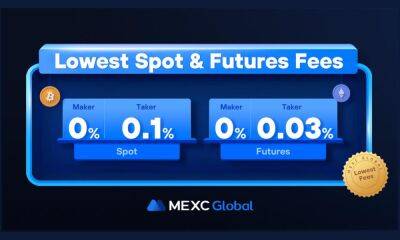Carbon market gets a much-needed boost from blockchain technology — Web3 exec
Automated systems and blockchain technology are being increasingly utilized to improve the efficiency and accuracy of the carbon market, a critical component in the fight against climate change.
Cointelegraph spoke to Bill Kentrup about the role of blockchain technology in digitizing verifiable data in the carbon market. Kentrup is the head of origination and co-founder of enterprise software Allinfra Climate — a platform designed to help institutions achieve their sustainability goals. According to him, on-chain monitoring, reporting, verification, issuance, allocation and retirement of carbon credits and carbon claims could bring about efficiency and predictability that hasn’t existed in the past.
Kentrup said that by putting everything on “digital rails,” systems for detecting double-counting, corporate carbon accounting, ratings and reporting to government regulators can all go digital, saying:
Kentrup mentioned that historically, the challenges and inefficiencies associated with the carbon market have resulted in understandable frustration and significant pushback. According to him, this pushback contributed to the failure to extend the Kyoto Protocol beyond 2012.
The Kyoto Protocol is an international treaty aimed at reducing greenhouse gas emissions and addressing climate change. It established a system of emissions trading, allowing countries that have exceeded their emissions reduction targets to sell their surplus allowances to countries that have not met their targets.
Speaking on how the current manual process of collecting and verifying data in the carbon market falls short — and how blockchain technology can help address these limitations — Kentrup said, “Most traditional approaches used to monitor, report and
Read more on cointelegraph.com



![Algorand [ALGO]: Day traders reluctant as market sentiment remains bearish - ambcrypto.com - city Santiment](https://finance-news.co/storage/thumbs_400/img/2023/3/1/57939_g8tcz.jpg)










![Will TRON’s [TRX] high TPS be enough to improve its DeFi state? - ambcrypto.com - city Santiment](https://finance-news.co/storage/thumbs_400/img/2023/3/1/57880_9o4tk.jpg)


